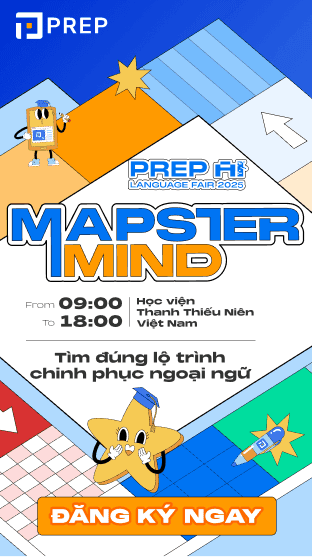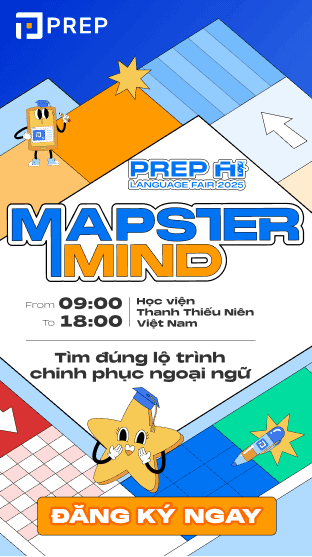Đề bài và giải thích đáp án chi tiết bài IELTS Cambridge 13 Reading Test 4 passage 3 Book Review
Bài đọc Book Review trong IELTS Cambridge 13 Reading Test 4 Passage 3 là một bài phân tích – phê bình sách có nội dung học thuật sâu, yêu cầu thí sinh nắm bắt lập luận, so sánh quan điểm và xác định chi tiết ẩn trong văn bản. Với chủ đề đánh giá một cuốn sách nghiên cứu lịch sử phát triển đô thị và hành vi con người, passage này đòi hỏi người học có khả năng đọc hiểu ở mức độ cao, đặc biệt là kỹ năng nhận diện ý chính, suy luận và phân biệt quan điểm tác giả – dẫn chứng. Trong bài viết này, bạn sẽ được xem đề bài, đáp án chuẩn, kèm theo giải thích chi tiết từng câu hỏi và từ vựng học thuật quan trọng, giúp bạn hiểu sâu nội dung bài đọc, ôn luyện hiệu quả và hướng tới mục tiêu đạt band điểm cao trong phần thi IELTS Reading.
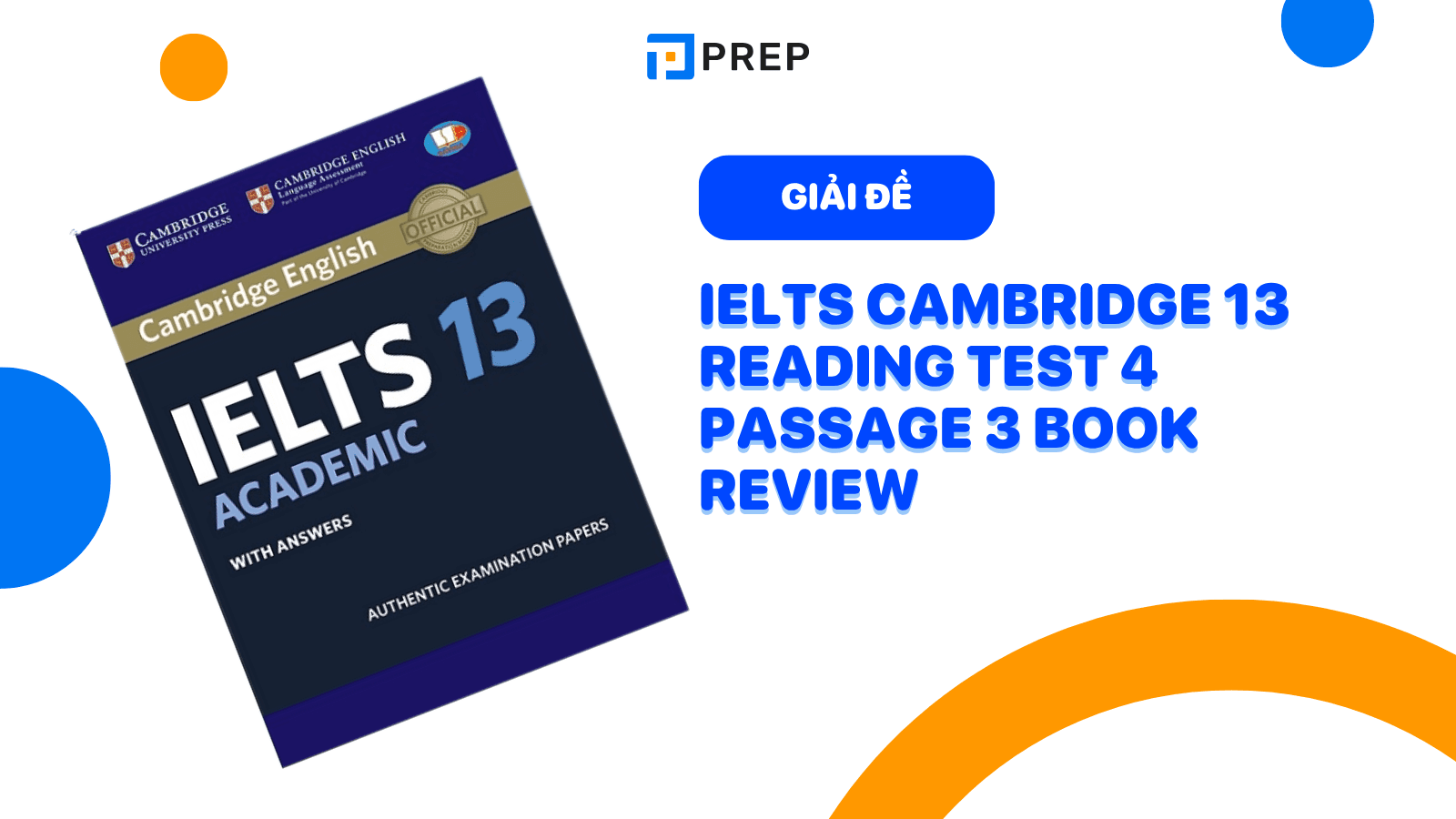
I. Đề bài đọc IELTS Cambridge 13 Reading Test 4 passage 3 Book Review
Reading The Happiness Industry: How the Government and Big Business Sold Us Well-Being By William Davies
The Happiness Industry: How the Government and Big Business Sold Us Well-Being
By William Davies
‘Happiness is the ultimate goal because it is self-evidently good. If we are asked why happiness matters we can give no further external reason. It just obviously does matter.’ This pronouncement by Richard Layard, an economist and advocate of ‘positive psychology’, summarises the beliefs of many people today. For Layard and others like him, it is obvious that the purpose of government is to promote a state of collective well-being. The only question is how to achieve it, and here positive psychology – a supposed science that not only identifies what makes people happy but also allows their happiness to be measured – can show the way. Equipped with this science, they say, governments can secure happiness in society in a way they never could in the past.
It is an astonishingly crude and simple-minded way of thinking, and for that very reason increasingly popular. Those who think in this way are oblivious to the vast philosophical literature in which the meaning and value of happiness have been explored and questioned, and write as if nothing of any importance had been thought on the subject until it came to their attention. It was the philosopher Jeremy Bentham (1748–1832) who was more than anyone else responsible for the development of this way of thinking. For Bentham it was obvious that the human good consists of pleasure and the absence of pain. The Greek philosopher Aristotle may have identified happiness with self-realisation in the 4th century BC, and thinkers throughout the ages may have struggled to reconcile the pursuit of happiness with other human values, but for Bentham all this was mere metaphysics or fiction. Without knowing anything much of him or the school of moral theory he established – since they are by education and intellectual conviction illiterate in the history of ideas – our advocates of positive psychology follow in his tracks in rejecting as outmoded and irrelevant pretty much the entirety of ethical reflection on human happiness to date.
But as William Davies notes in his recent book The Happiness Industry, the view that happiness is the only self-evident good is actually a way of limiting moral inquiry. One of the virtues of this rich, lucid and arresting book is that it places the current cult of happiness in a well-defined historical framework. Rightly, Davies begins his story with Bentham, noting that he was far more than a philosopher. Davies writes, ‘Bentham’s activities were those which we might now associate with a public sector management consultant’. In the 1790s, he wrote to the Home Office suggesting that the departments of government be linked together through a set of ‘conversation tubes’, and to the Bank of England with a design for a printing device that could produce unforgettable banknotes. He drew up plans for a ‘frigidarium’ to keep provisions such as meat, fish, fruit and vegetables fresh. His celebrated design for a prison to be known as a ‘Panopticon’, in which prisoners would be kept in solitary confinement while being visible at all times to guards, was very nearly adopted. (Surprisingly, Davies does not discuss the fact that Bentham meant his Panopticon not just as a model prison but also as an instrument of control that could be applied to schools and factories.)
Bentham was also a pioneer of the ‘science of happiness’. If happiness is to be regarded as a science, it has to be measured, and Bentham suggested two ways in which this might be done. Viewing happiness as a complex of pleasurable sensations, he suggested that it might be quantified by measuring the human pulse rate. Alternatively, money could be used as the standard for quantification: if two different goods have the same price, it can be claimed that they produce the same quantity of pleasure in the consumer. Bentham was more attracted by the latter measure, by associating money so closely to inner experience. Davies writes, Bentham ‘set the stage for the entangling of psychological research and capitalism that would shape the business practices of the twentieth century’.
The Happiness Industry describes how the project of a science of happiness has become integral to capitalism. We learn much that is interesting about how economic problems are being redefined and treated as psychological maladies. In addition, Davies shows how the belief that inner states of pleasure and displeasure can be objectively measured has informed management studies and advertising. The tendency of thinkers such as J B Watson, the founder of behaviourism*, was that human beings could be shaped, or manipulated, by policymakers and managers. Watson had no factual basis for his view of human action. When he became president of the American Psychological Association in 1915, he ‘had never even studied a single human being’: his research had been confined to experiments on white rats. Yet Watson’s reductive model is now widely applied, with ‘behaviour change’ becoming the goal of governments: in Britain, a ‘Behaviour Insights Team’ has been established by the government to study how people can be encouraged, at minimum cost to the public purse, to live in what are considered to be socially desirable ways.
Modern industrial societies appear to need the possibility of ever-increasing happiness to motivate them in their labours. But whatever its intellectual pedigree, the idea that governments should be responsible for promoting happiness is always a threat to human freedom.
Questions 27-29
Choose the correct letter, A, B, C or D.
Write the correct letter in boxes 27-29 on your answer sheet.
-
What is the reviewer's attitude to advocates of positive psychology?
-
A They are wrong to reject the ideas of Bentham.
-
B They are over-influenced by their study of Bentham's theories.
-
C They have a fresh new approach to ideas on human happiness.
-
D They are ignorant about the ideas they should be considering.
-
The reviewer refers to the Greek philosopher Aristotle in order to suggest that happiness
-
A may not be just pleasure and the absence of pain.
-
B should not be the main goal of humans.
-
C is not something that should be fought for.
-
D is not just an abstract concept.
-
According to Davies, Bentham's suggestion for linking the price of goods to happiness was significant because
-
A it was the first successful way of assessing happiness.
-
B it established a connection between work and psychology.
-
C it was the first successful example of psychological research.
-
D it involved consideration of the rights of consumers.
Questions 30-34
Complete the summary using the list of words A-G below.
Write the correct letter, A-G, in boxes 30-34 on your answer sheet.
Jeremy Bentham
Jeremy Bentham was active in other areas besides philosophy. In the 1790s he suggested a type of technology to improve 30 __________ for different Government departments. He developed a new way of printing banknotes to increase 31 __________ and also designed a method for the 32 __________ of food. He also drew up plans for a prison which allowed the 33 __________ of prisoners at all times, and believed the same design could be used for other institutions as well. When researching happiness, he investigated possibilities for its 34 __________, and suggested some methods of doing this.
A measurement
B security
C implementation
D profits
E observation
F communication
G preservation
Questions 35-40
Do the following statements agree with the claims of the writer in Reading Passage 3?
In boxes 35-40 on your answer sheet, write
-
YES if the statement agrees with the claims of the writer
-
NO if the statement contradicts the claims of the writer
-
NOT GIVEN if it is impossible to say what the writer thinks about this
-
One strength of The Happiness Industry is its discussion of the relationship between psychology and economics.
-
It is more difficult to measure some emotions than others.
-
Watson's ideas on behaviourism were supported by research on humans he carried out before 1915.
-
Watson's ideas have been most influential on governments outside America.
-
The need for happiness is linked to industrialisation.
-
A main aim of government should be to increase the happiness of the population.
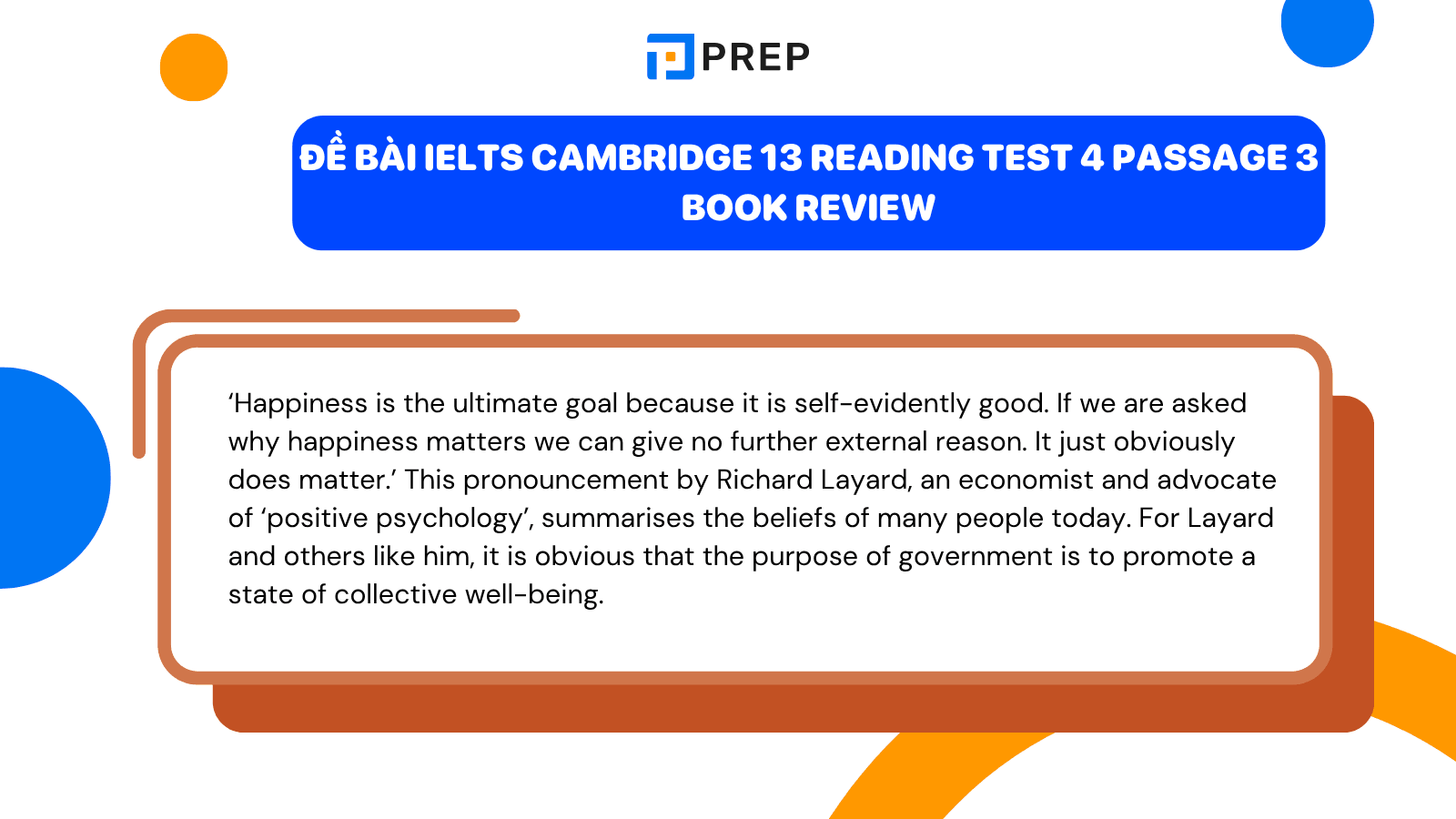
II. Đáp án bài đọc IELTS Cambridge 13 Reading Test 4 passage 3 Book Review
Reading Passage 3, Questions 27-40
-
D
-
A
-
B
-
F
-
B
-
G
-
E
-
A
-
YES
-
NOT GIVEN
-
NO
-
NOT GIVEN
-
YES
-
NO
III. Giải thích đáp án chi tiết bài IELTS Cambridge 13 Reading Test 4 passage 3 Book Review
Tham khảo phần giải thích đáp án chi tiết sau để nắm được cách giải quyết từng dạng bài:
Questions 27–29 (Multiple Choice)
|
Câu |
Đáp án |
Giải thích |
|
27 |
D |
Reviewer nói các nhà tâm lý học tích cực “oblivious to the vast philosophical literature” = họ ignorant (thiếu hiểu biết) về các tư tưởng quan trọng trong lịch sử → chọn D. |
|
28 |
A |
Đoạn 2 nêu Aristotle hiểu “happiness with self-realisation”, đối lập Bentham (happiness = pleasure). Mục đích: chỉ ra hạnh phúc không chỉ là khoái lạc/không đau → A. |
|
29 |
B |
Davies nói liên hệ tiền – hạnh phúc đặt nền móng cho mối liên hệ giữa tâm lý học & chủ nghĩa tư bản / kinh doanh → “entangling psychological research and capitalism” → B. |
Questions 30–34 (Summary)
|
Câu |
Đáp án |
Giải thích |
|
30 |
F (communication) |
Bentham đề xuất hệ thống “conversation tubes” giữa các cơ quan → communication. |
|
31 |
B (security) |
Ông tạo công nghệ in tiền khó bị làm giả → tăng bảo mật. |
|
32 |
G (preservation) |
Thiết kế “frigidarium” để giữ thực phẩm tươi = preservation. |
|
33 |
E (observation) |
Panopticon cho phép giám sát tù nhân mọi lúc → observation. |
|
34 |
A (measurement) |
Bentham thử đo nhịp tim & tiền để đo hạnh phúc → measurement. |
Questions 35–40 (YES / NO / NOT GIVEN)
|
Câu |
Đáp án |
Giải thích |
|
35 |
YES |
Reviewer nói sách mô tả cách kinh tế ↔ tâm lý học gắn nhau → đúng. |
|
36 |
NOT GIVEN |
Passage nói về đo hạnh phúc, không phân biệt mức độ khó của các loại cảm xúc. |
|
37 |
NO |
Text nói Watson chưa từng nghiên cứu trên người trước 1915 → mâu thuẫn. |
|
38 |
NOT GIVEN |
Không nói Watson ảnh hưởng ở đâu nhiều nhất. |
|
39 |
YES |
Đoạn cuối: “modern industrial societies appear to need happiness…” → liên hệ công nghiệp hoá. |
|
40 |
NO |
Cuối bài: ý tưởng chính phủ tạo hạnh phúc đe doạ tự do → phủ nhận vai trò chính phủ thúc đẩy hạnh phúc. |
IV. Từ vựng hay trong bài cần ghi nhớ
|
Từ vựng |
Giải nghĩa |
Ví dụ |
|
advocate /ˈædvəkeɪt/ |
người ủng hộ; đề xuất |
He is a strong advocate of positive psychology. (Anh ấy là người ủng hộ mạnh mẽ tâm lý học tích cực.) |
|
self-evident /ˌselfˈevɪdənt/ |
hiển nhiên, không cần chứng minh |
They believe happiness is self-evident. (Họ tin rằng hạnh phúc là điều hiển nhiên.) |
|
metaphysics /ˌmetəˈfɪzɪks/ |
siêu hình học; triết học về bản chất |
Bentham dismissed traditional ideas as metaphysics. (Bentham bác bỏ các tư tưởng truyền thống như siêu hình học.) |
|
framework /ˈfreɪmwɜːrk/ |
khung, cấu trúc, hệ thống |
The book provides a historical framework for the idea. (Cuốn sách cung cấp khung lịch sử cho ý tưởng này.) |
|
surveillance /sɜːrˈveɪləns/ |
sự giám sát chặt chẽ |
The Panopticon allowed constant surveillance. (Panopticon cho phép giám sát liên tục.) |
|
quantify /ˈkwɑːntɪfaɪ/ |
đo lường bằng con số |
Bentham attempted to quantify happiness. (Bentham cố gắng đo lường hạnh phúc.) |
|
manipulate /məˈnɪpjuleɪt/ |
thao túng, điều khiển |
Governments can manipulate behaviour through policies. (Chính phủ có thể thao túng hành vi thông qua chính sách.) |
|
malady /ˈmælədi/ |
bệnh lý; vấn đề nghiêm trọng |
Economic issues are treated as psychological maladies. (Các vấn đề kinh tế được xem như bệnh lý tâm lý.) |
|
pedigree /ˈpedɪɡri/ |
nguồn gốc học thuật; lý lịch |
The idea has a long intellectual pedigree. (Ý tưởng này có nguồn gốc học thuật lâu đời.) |
|
threat /θret/ |
mối đe doạ |
Government control of happiness is a threat to freedom. (Việc chính phủ kiểm soát hạnh phúc là mối đe doạ tự do.) |
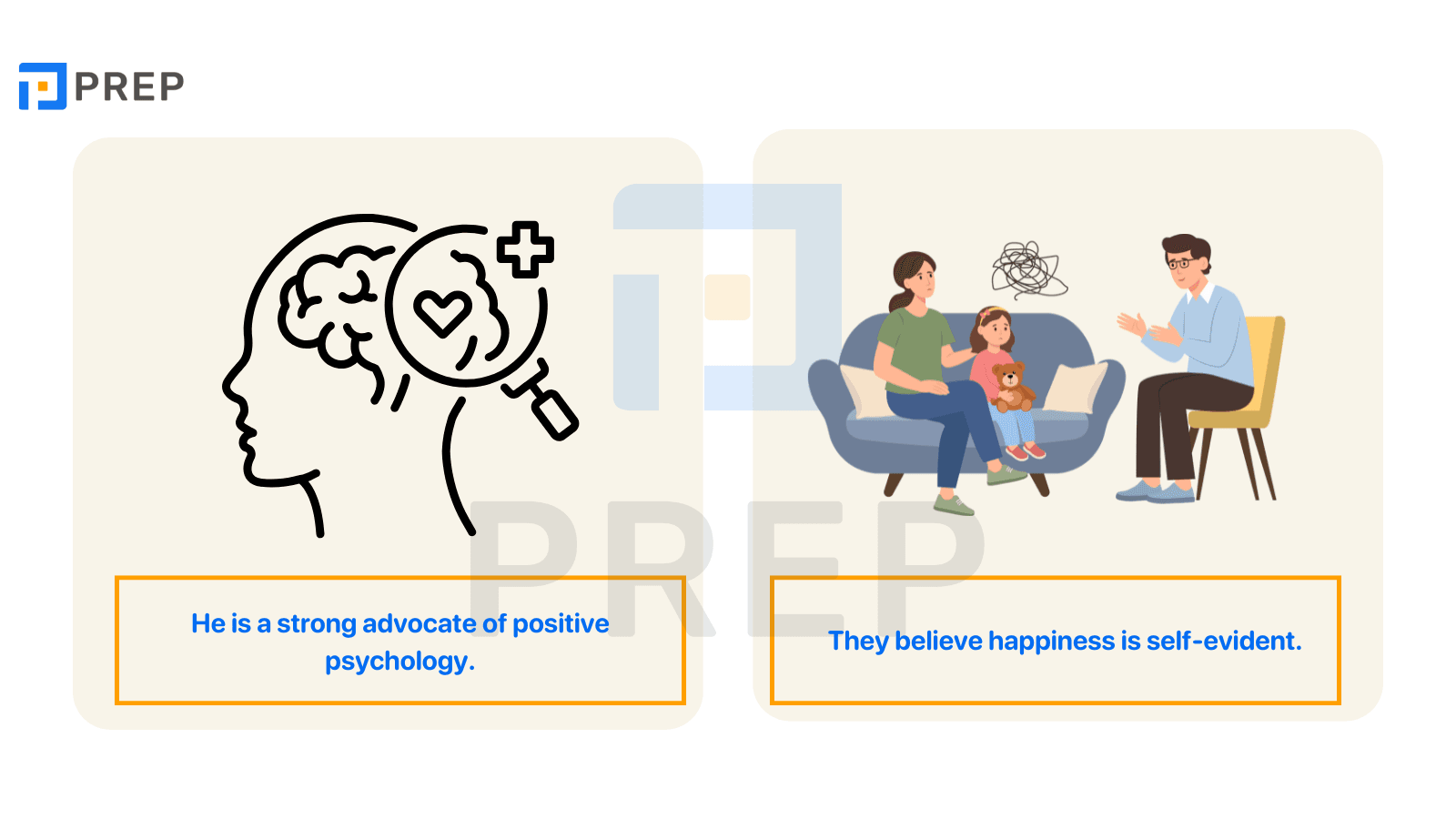
Trên đây là đề bài và đáp án bài đọc IELTS Cambridge 13 Reading Test 4 passage 3 Book Review. Hy vọng tài liệu trên sẽ giúp bạn luyện thi IELTS hiệu quả hơn, nâng band điểm như mong đợi.
Học tiếng Anh online dễ dàng hơn với PREP - Nền tảng Học & Luyện thi thông minh cùng AI. Nhờ công nghệ AI độc quyền, bạn có thể tự học trực tuyến ngay tại nhà, chinh phục lộ trình học IELTS, TOEIC, tiếng Anh giao tiếp hiệu quả. Bên cạnh đó, học viên còn có sự hỗ trợ tuyệt vời từ Teacher Bee AI, trợ lý ảo giúp bạn giải đáp thắc mắc và đồng hành 1-1 trong suốt quá trình học tập. Hãy click TẠI ĐÂY hoặc liên hệ HOTLINE 0931428899 để nhận tư vấn chi tiết về các khóa học tiếng Anh chất lượng nhất thị trường!
Tải ngay app PREP để bắt đầu hành trình học tiếng Anh tại nhà với chương trình học luyện thi online chất lượng cao.

Chào bạn! Mình là Hiền Hoàng, hiện đang đảm nhận vai trò quản trị nội dung sản phẩm tại Blog của website prepedu.com.
Với hơn 5 năm tự học các ngoại ngữ như tiếng Anh, tiếng Trung và ôn luyện một số kỳ thi IELTS, TOEIC, HSK, mình đã tự đúc rút được nhiều kinh nghiệm để hỗ trợ hàng nghìn người đang gặp khó khăn trong việc học ngoại ngữ. Hy vọng rằng những chia sẻ phía trên sẽ giúp ích cho bạn trong quá trình tự ôn luyện thi hiệu quả tại nhà!
Bình luận
Nội dung premium
Xem tất cảLộ trình cá nhân hoá
Có thể bạn quan tâm
Kết nối với Prep

MSDN: 0109817671.
Địa chỉ liên hệ: Tòa nhà Vinaconex, 34 Láng Hạ, phường Láng, TP Hà Nội.
Địa chỉ kinh doanh: Lô 21 C2 Khu đô thị Nam Trung Yên, phường Yên Hòa, TP Hà Nội.
Trụ sở: Số nhà 20, ngách 234/35 đường Hoàng Quốc Việt, phường Nghĩa Đô, TP Hà Nội.
Phòng luyện ảo - Trải nghiệm thực tế - Công nghệ hàng đầu.
Hotline: 0931 42 8899.
Trụ sở: Số nhà 20, ngách 234/35 đường Hoàng Quốc Việt, phường Nghĩa Đô, TP Hà Nội.
Giấy chứng nhận hoạt động đào tạo, bồi dưỡng số 1309/QĐ-SGDĐT ngày 31 tháng 07 năm 2023 do Sở Giáo dục và Đào tạo Hà Nội cấp.





